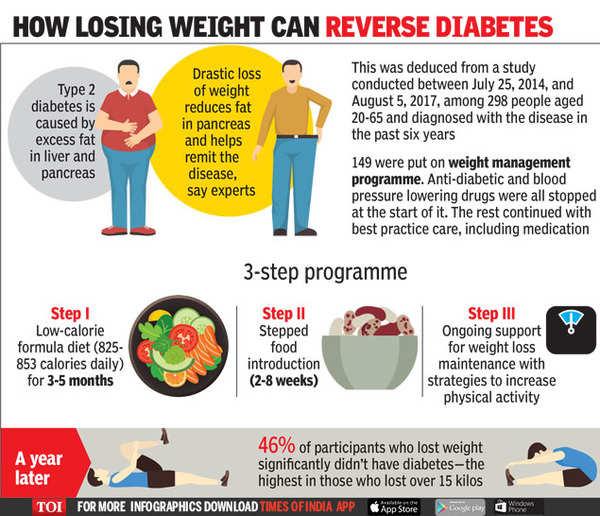Embarking on a weight loss journey is often seen as a quest for better health, but for those living with diabetes, it becomes a finely tuned balancing act. Imagine navigating a complex maze where every turn holds the promise of improved well-being, yet also the potential for unforeseen challenges. This is the reality for many individuals with diabetes seeking to shed pounds safely. In this article, we will explore the art and science of weight loss tailored specifically for diabetics, offering insights into managing blood sugar levels, making informed dietary choices, and embracing a lifestyle that supports both health and vitality. Join us as we unravel the strategies that can transform this intricate journey into a sustainable path toward a healthier you.
Understanding Diabetes and Weight Loss
Managing weight while living with diabetes requires a careful balance of nutrition, exercise, and medication. It’s crucial to focus on strategies that ensure steady progress without compromising blood sugar levels. Here are some effective ways to achieve this:
- Balanced Diet: Opt for a diet rich in whole grains, lean proteins, and healthy fats. Incorporate plenty of vegetables and fruits while limiting refined sugars and carbohydrates.
- Regular Exercise: Engage in activities like walking, swimming, or cycling. Aim for at least 150 minutes of moderate-intensity exercise per week, as recommended by health professionals.
- Consistent Monitoring: Keep track of your blood glucose levels regularly to understand how different foods and activities affect your body. Adjust your diet and exercise plan accordingly.
- Hydration: Drinking plenty of water can aid in weight management and help maintain optimal body functions.
- Professional Guidance: Consult with healthcare providers or a dietitian to create a personalized weight loss plan that aligns with your health needs.
By incorporating these approaches, you can embark on a journey towards a healthier lifestyle that supports both weight loss and effective diabetes management. Remember, small consistent changes often lead to the most sustainable results.

Crafting a Balanced, Diabetes-Friendly Diet
Achieving a harmonious balance in your diet while managing diabetes is not just about restriction but about making smart, informed choices that nourish your body. Prioritize foods rich in fiber and low in sugar to help stabilize blood sugar levels. Consider incorporating whole grains, leafy greens, and lean proteins into your meals. These foods not only support weight loss but also keep you feeling full longer. Remember, moderation is key; enjoy your favorite foods in smaller portions and savor each bite.
- Whole Grains: Opt for quinoa, brown rice, or whole wheat pasta.
- Leafy Greens: Spinach, kale, and broccoli are excellent choices.
- Lean Proteins: Include chicken, fish, or tofu in your meals.
- Healthy Fats: Avocados, nuts, and olive oil can be beneficial.
It’s also essential to maintain a regular eating schedule to prevent blood sugar spikes and crashes. Small, frequent meals can help maintain energy levels and reduce the temptation to snack on unhealthy options. Pair your carbohydrates with proteins or healthy fats to slow down the absorption of sugar into your bloodstream. With thoughtful planning and mindful eating, a balanced, diabetes-friendly diet can be both delicious and effective for weight management.

Incorporating Safe and Effective Exercise Routines
Finding a balance between maintaining a healthy weight and managing diabetes can be a delicate dance, but incorporating safe and effective exercise routines into your daily life can make a world of difference. Focus on exercises that suit your individual needs and condition, and always consult with a healthcare professional before starting any new workout regimen. Begin with low-impact activities that are gentle on your joints and gradually increase the intensity as your fitness level improves. Consider including activities such as:
- Walking: A simple yet powerful way to enhance cardiovascular health and improve insulin sensitivity.
- Cycling: Offers a low-impact workout that can be adjusted in intensity to match your fitness level.
- Swimming: Provides a full-body workout that minimizes strain on the joints while improving flexibility and strength.
- Strength Training: Helps in building muscle mass, which can improve glucose metabolism and promote fat loss.
Consistency is key when it comes to exercise, so aim for at least 150 minutes of moderate-intensity aerobic activity each week, as recommended by health experts. Remember, the goal is not just weight loss but also improving overall health and well-being. By integrating these safe exercises into your routine, you’ll be taking a proactive step towards managing diabetes effectively while nurturing a healthier lifestyle.

Monitoring Progress and Adjusting Strategies
Keeping a close eye on your progress is essential for safely losing weight with diabetes. Regular monitoring allows you to understand what strategies are working and where adjustments might be needed. Start by maintaining a detailed journal of your daily food intake, exercise routines, and blood sugar levels. This not only helps in identifying patterns but also aids in making informed decisions. Make use of digital tools or apps designed to track diabetes management and weight loss; they can offer insights and reminders tailored to your needs.
- Weekly Check-ins: Schedule a time each week to review your progress. Look at your journal entries to assess if you’re meeting your nutritional and exercise goals.
- Adjust as Needed: If your blood sugar levels are consistently higher or lower than desired, it might be time to tweak your diet or medication. Always consult with your healthcare provider before making significant changes.
- Stay Flexible: Understand that weight loss is a journey with ups and downs. Be prepared to adapt your strategies based on what your body tells you.
Being proactive about monitoring and adjusting your weight loss plan can help maintain both your diabetes management and overall health. Remember, the goal is to achieve a sustainable lifestyle change that promotes well-being.








